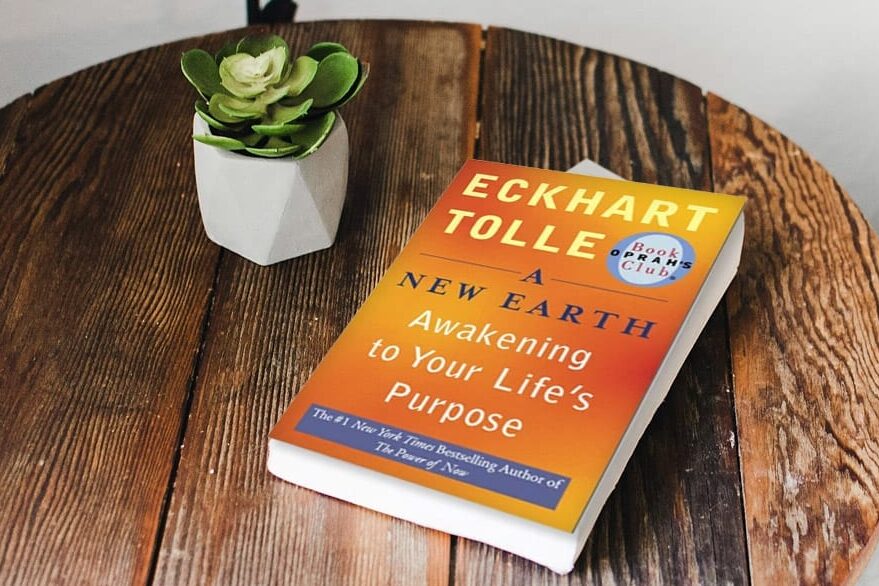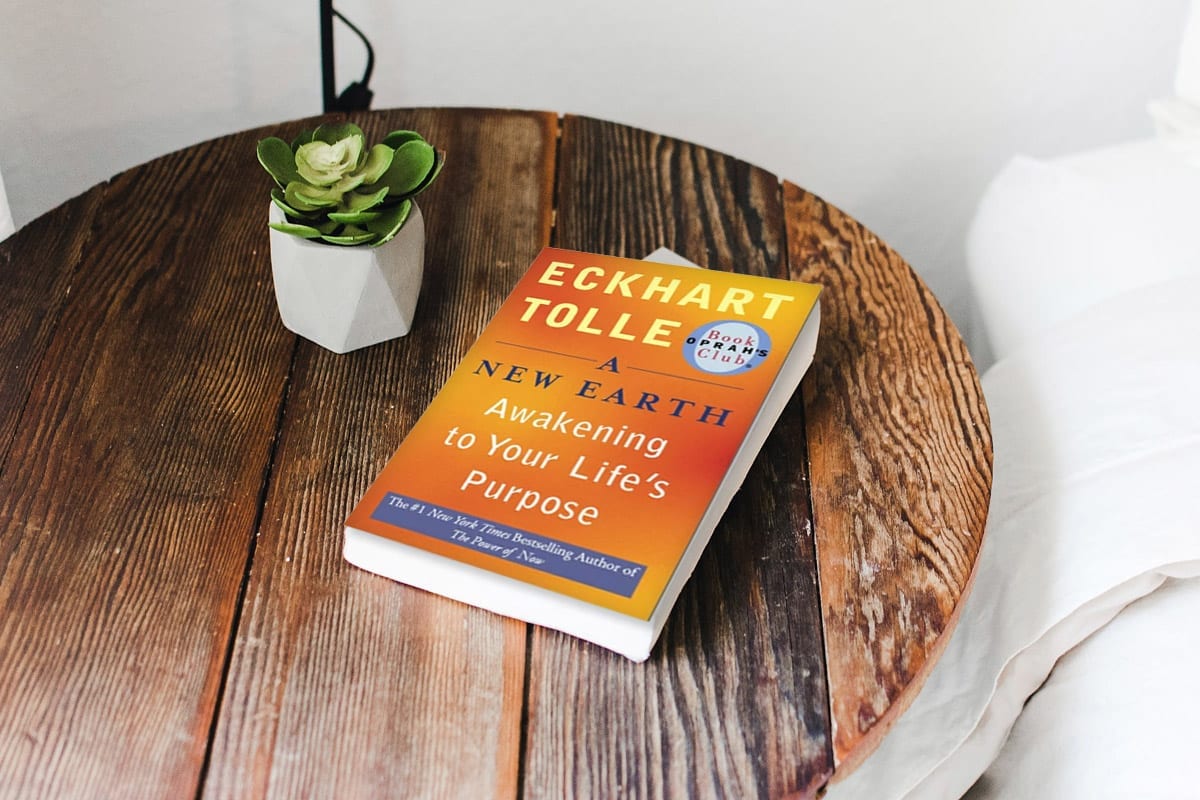Every so often, you come across a book that doesn’t just engage you; it shakes you awake. For me, Eckhart Tolle’s A New Earth was one such book. When I first picked it up, I was looking for answers—not to specific questions, but to the noise in my mind and the disconnection I felt from life. What I found instead wasn’t just answers but a new way of being.
If you’re someone who has ever felt like life is passing you by, or you’ve questioned the constant pull of ego and societal expectations, this book is worth your time. It’s not a light read, but it’s an immensely rewarding one. Let me take you through why A New Earth feels like a conversation with your deeper self—and why it might just change your life.
What Is A New Earth About?
At its core, A New Earth is about awakening. Not in a mystical or religious sense, but in a deeply human one. Tolle explores how we can transcend the constant chatter of our minds, which he calls the ego, to live more authentically and peacefully. The book is about shedding the illusions of identity—our roles, labels, and beliefs—that trap us and embracing presence, which is our true essence.
One of the book’s most profound insights is this:
“The primary cause of unhappiness is never the situation but your thoughts about it.”
This single line hit me hard. How often do we blame the external world for our misery, not realizing that the storm is within? Tolle doesn’t just tell us this; he gently guides us to see it for ourselves.
Breaking Down Key Ideas
1. The Ego and Its Games
Tolle spends a significant part of the book helping us recognize the ego for what it is: a construct of the mind. The ego thrives on comparison, drama, and a sense of separateness. It says, “I am my job, my possessions, my relationships.” But, as Tolle points out, these identities are fragile and fleeting.
A personal example comes to mind here. I once tied my self-worth entirely to my career. Promotions felt like victories, and setbacks felt like personal failures. Reading Tolle’s line—“You are not what you do. You are not your possessions. You are not the roles you play”—felt like a gentle reminder to step off the treadmill and just be.
2. The Pain-Body: A Reservoir of Unprocessed Pain
Another powerful concept Tolle introduces is the “pain-body.” He describes it as the emotional baggage we carry from past traumas, both personal and collective. This pain-body feeds on negativity and often sabotages our peace.
I saw this in action during a heated argument with a friend. The intensity of my reaction surprised me—it was as if the pain of every unresolved conflict from my past poured out in that moment. Tolle explains, “The pain-body wants to survive, just like every other entity in existence, and it can only survive if it gets you to unconsciously identify with it.” Understanding this allowed me to step back, breathe, and respond with awareness rather than react blindly.
3. Living in Presence
The heart of Tolle’s message is presence. It’s about being here, now—not lost in the regrets of yesterday or the anxieties of tomorrow. Presence is where life actually happens. Tolle writes:
“Life is now. There was never a time when your life was not now, nor will there ever be.”
One of the exercises Tolle suggests is to bring your attention fully to the present moment, even in mundane tasks. Washing dishes became a surprising gateway for me. Instead of rushing through it, I paid attention to the sensation of water on my hands, the sound of running water, the gleam of clean dishes. It felt oddly liberating to just be with the act.
Why “A New Earth” Matters Today

In a world constantly pulling us in a million directions—through social media, career pressures, and societal expectations—A New Earth feels like a much-needed pause. It invites us to step out of the noise and into stillness, where true peace resides.
Tolle doesn’t promise quick fixes or superficial positivity. He’s honest about the work required to shift from ego-driven living to an awakened state. But his language is compassionate, almost like a friend holding your hand through the process.
One of my favorite lines sums it up beautifully:
“Awareness is the greatest agent for change.”
A Relatable Read or Too Abstract?
Let me be honest—there were parts of the book where I struggled. Some of Tolle’s ideas felt abstract, almost too philosophical. But I realized this was because my ego was resisting. The beauty of A New Earth is that it’s not meant to be understood intellectually; it’s meant to be experienced.
If you’re someone who enjoys straightforward narratives, you might need to read this book slowly, letting each chapter sink in. And that’s okay. This isn’t a book to be rushed—it’s a book to grow with.
Should You Read It?
Absolutely. Whether you’re new to spirituality or you’ve been exploring it for years, A New Earth has something to offer. It’s not about adopting new beliefs or following a particular path. It’s about peeling back the layers of illusion to discover who you already are beneath it all.
If I had to sum up my experience with A New Earth, I’d say this: It’s like looking in a mirror for the first time and truly seeing yourself—not the roles you play, not the stories you tell, but the silent, vibrant presence that has always been there.
Final Thoughts
“You find peace not by rearranging the circumstances of your life, but by realizing who you are at the deepest level.”
This line stayed with me long after I closed the book. It’s a reminder that the journey inward is the most important one we’ll ever take.
So, if you’re ready to embark on that journey, pick up A New Earth. It’s not just a book; it’s an experience—one that has the potential to shift the way you see yourself and the world. And isn’t that what true spirituality is all about?

